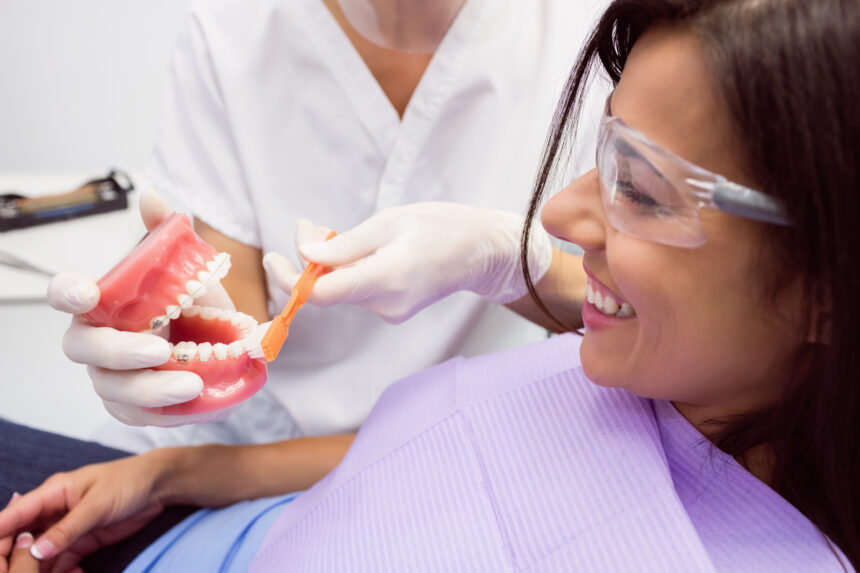Title: Coping with Pregnancy-Related Swollen Gums and Dental Care
Introduction: Pregnancy is a special time in a woman’s life, but it can also bring about various changes in the body, including oral health issues. One common concern is swollen gums, also known as pregnancy gingivitis. Hormonal changes during pregnancy can make gums more susceptible to inflammation and irritation. It’s essential to understand how to cope with swollen gums and maintain proper dental care during pregnancy. In this article, we will explore strategies for managing pregnancy-related swollen gums and maintaining good oral health.
Understanding Pregnancy Gingivitis: Pregnancy gingivitis is a condition characterized by inflammation and swelling of the gums. It is primarily caused by hormonal changes that increase blood flow to the gums, making them more sensitive to plaque and bacteria. Without proper oral hygiene, gingivitis can progress to more severe gum diseases, such as periodontitis. Therefore, it’s crucial to address swollen gums promptly and take preventive measures.
Coping with Swollen Gums During Pregnancy:
- Practice Good Oral Hygiene: Maintaining good oral hygiene is crucial during pregnancy. Follow these essential practices:
- Brush your teeth at least twice a day using a soft-bristled toothbrush and fluoride toothpaste.
- Floss daily to remove plaque and food particles from between the teeth.
- Rinse with an antimicrobial mouthwash to reduce bacteria.
- Use a tongue scraper to gently clean the surface of the tongue.
- Be Gentle with Your Gums: During pregnancy, your gums may become more sensitive. Be gentle while brushing and flossing to avoid further irritation. Use a soft touch and avoid aggressive scrubbing, which can cause gum recession or damage to the gum tissue.
- Choose a Proper Diet: A healthy diet rich in vitamins and minerals can support oral health. Include foods high in calcium, vitamin C, and vitamin D to promote strong teeth and gums. Reduce your consumption of sugary snacks and beverages, as they can contribute to dental problems.
- Stay Hydrated: Drinking plenty of water helps to flush away bacteria and maintain saliva production. Adequate hydration is important for oral health as it helps to reduce dry mouth, a condition that can contribute to dental issues.
- Regular Dental Check-ups: Maintain regular dental check-ups throughout your pregnancy. Inform your dentist about your pregnancy so that they can provide appropriate care and guidance. Professional dental cleanings can help remove plaque and tartar, reducing the risk of gum inflammation and disease.
- Address Dental Issues Promptly: If you notice any changes in your oral health, such as persistent swelling, bleeding gums, or tooth sensitivity, consult your dentist promptly. Early intervention can prevent the progression of dental problems and minimize the risk of complications.
- Use Cold Compresses: If your gums are particularly swollen or uncomfortable, applying a cold compress or ice pack to the outside of your cheek can help reduce inflammation and provide temporary relief.
- Consider Dental Products for Sensitive Gums: There are toothpastes and mouth rinses specifically designed for individuals with sensitive gums. Look for products that are gentle, alcohol-free, and formulated for sensitive teeth and gums. Consult your dentist for recommendations.
- Maintain a Stress-Free Environment: Stress can worsen oral health issues. Find healthy ways to manage stress during pregnancy, such as practicing relaxation techniques, getting regular exercise, and seeking support from loved ones.
- Educate Yourself: Stay informed about oral health during pregnancy. Read reputable sources, attend prenatal classes, and ask your dentist for educational materials. Understanding the changes happening in your body can help you cope with pregnancy-related oral health concerns more effectively.
Conclusion: Coping with pregnancy-related swollen gums requires diligent oral hygiene practices, regular dental check-ups, and prompt intervention when necessary. By following these strategies and maintaining good oral health habits, you can manage swollen gums during pregnancy and promote a healthy smile for both you and your baby. Remember, always consult with your dentist for personalized advice and guidance throughout your pregnancy.










